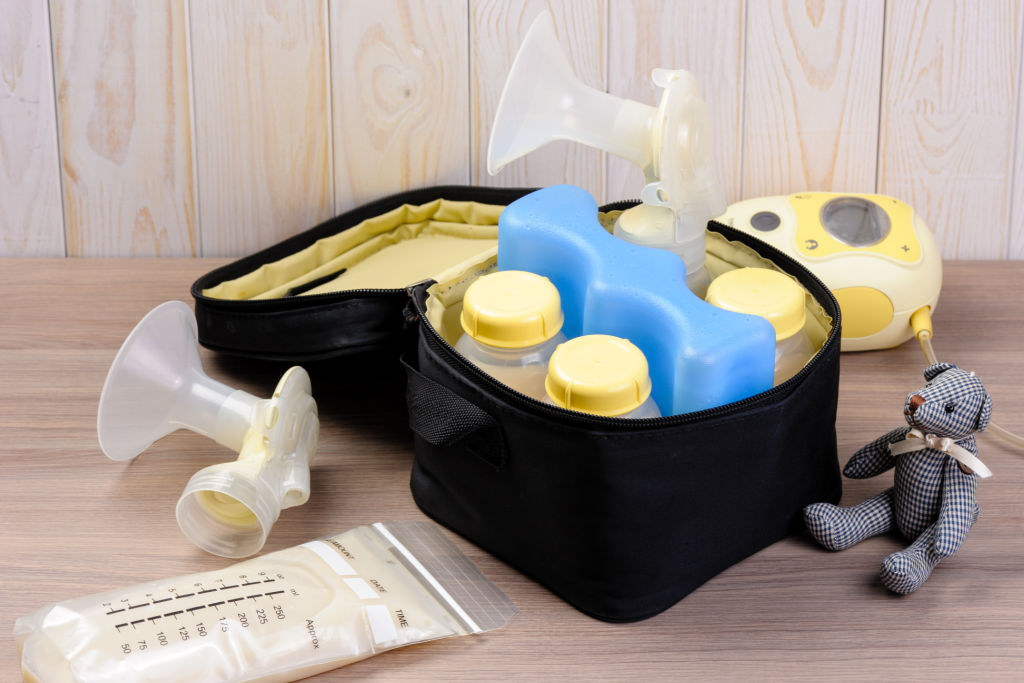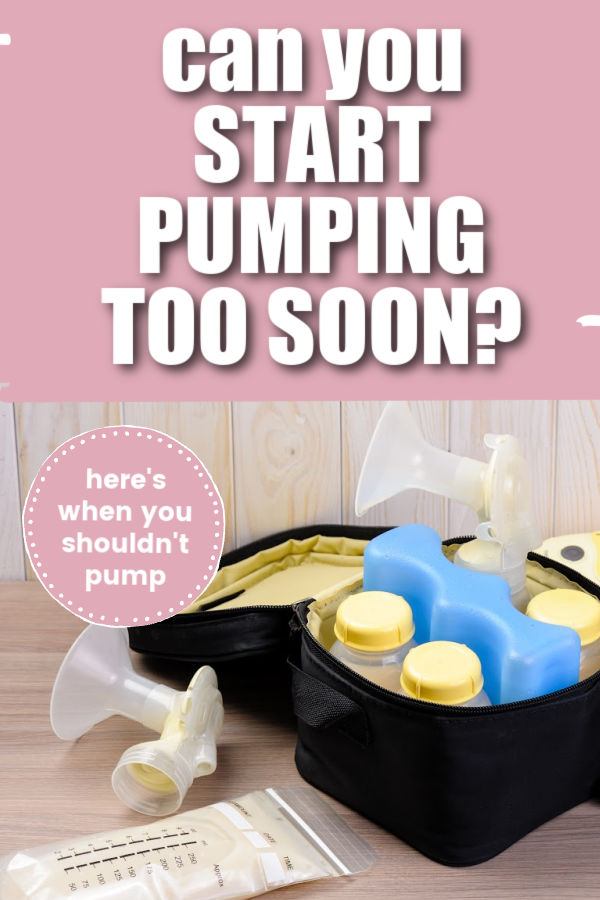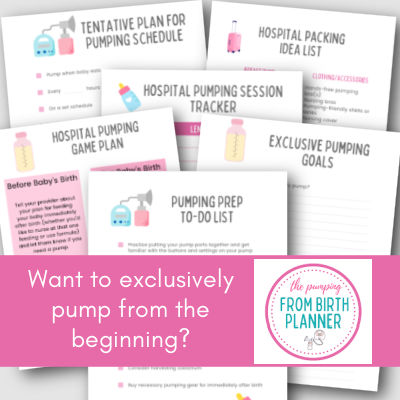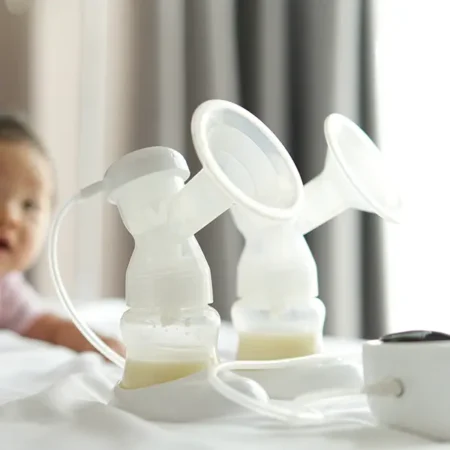Lots of new parents wonder when they should start pumping breast milk. Can you start pumping too early? A lot depends on your individual circumstances, so here’s what to consider.

This post may contain affiliate links, which means if you click a link and purchase something, I may make a small commission at no additional cost to you. I only recommend products I love! More information here.
When is it too early to pump breast milk?
You might have heard that you shouldn’t start pumping before 2 (or 3, or 4) weeks after your baby is born. But is this always true?
No. It depends on your situation.
For example, if your baby is in the NICU and can’t nurse, you will need to start pumping soon after birth.
If you decide to exclusively pump from birth, you’d also need to start right away.
If you need to be separated from your baby during a feeding (due to an emergency, or if you have to work, etc.) in the first few weeks, you’d need to pump.
But if you are nursing your baby, and things are going well and you’re able to stay together for all feedings, it may make sense to wait for a few weeks.
Why you might not want to start pumping too early
You always hear about people wanting to produce more milk, but there can be too much of a good thing.
Oversupply occurs when your milk supply is much larger than what the baby actually takes. This can cause:
- Forceful letdown when baby is nursing (basically, the milk comes rushing out like water from a fire hose and baby can’t handle it), and/or
- Foremilk/hindmilk imbalance, where baby fills up on foremilk and doesn’t get enough of the more fatty hindmilk.
Therefore, while your supply is still being established, you want to balance pumping when it’s necessary with avoiding pumping when it’s not, and ending up with an oversupply.
However, there is no time that is absolutely too early to pump breast milk.
When to start pumping depends on why you’re pumping
When you should start pumping depends on why you want or need to pump. Here is what to consider in each of the following scenarios.
1. If you’re exclusively pumping
Anyone who is exclusively pumping from birth (whether that’s due to medical issues like baby being in the NICU, or having made the choice to) should start pumping within a few hours, if possible, after birth.
If there are medical complications on your end, that might mean you have to wait for a bit until you get the all clear from your provider.
Otherwise, I would start pumping as soon as it’s feasible for you to do so after meeting your baby, having some skin-to-skin snuggles, etc.
Want help with exclusively pumping from birth?
More on exclusively pumping from birth here.
2. If you’re separated from your baby (due to work or other circumstances)
If you need to be away from your baby for a feeding, you’ll want to pump in order to maintain your milk supply.
Milk supply is based on demand, so in order to maintain it, you need to remove milk from your breasts via a pump if your baby isn’t able to nurse.
Therefore, when separated from your baby during a feeding – when baby will be taking breast milk or formula in a bottle – you should go ahead and pump, regardless of how old your baby is.
(Obviously, it’s ideal if you and baby are able to stay together through the first few weeks, but that’s not always possible.)
3. If you’re nursing (to build a freezer stash)
If you’re planning to be separated from your baby in the future – to go back to work, or for a date night – you may want to pump after you nurse in order to store a little extra milk.
Depending on how much milk you need to store, I would recommend starting to pump between one to three weeks before the separation.
If you’re pumping for one feeding, starting to pump a week beforehand should be more than enough time for you to get the hang of pumping and collect enough milk.
However, if you’re pumping for a full day of work, you might want to have a little more lead time.
More on pumping for a freezer stash here.
4. If you’re nursing (to increase supply)
If you’re struggling with your baby gaining weight at the breast and think that you might have an issue with milk supply, I would highly recommend working with a lactation consultant.
Often, the issue is with the latch, and a good lactation consultant can help you adjust it. (Here’s more info on finding a lactation consultant.)
While you work on the latch, you may want to try triple feeding to make sure you’re removing enough milk to establish supply. Triple feeding means nursing, then bottle feeding baby (either pumped breast milk or formula), and then pumping. More on triple feeding here.
Hopefully that answers any questions you have about when to start pumping! Let us know in the comments if you have any questions.
References
- Bonyata, Kelly, IBCLC. “Forceful Let-down (Milk Ejection Reflex) & Oversupply” https://kellymom.com/bf/got-milk/supply-worries/fast-letdown/
















Leave A Reply!